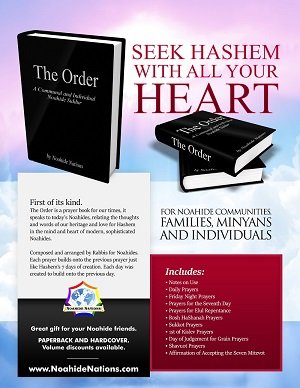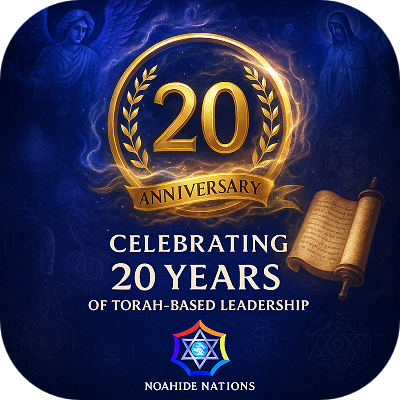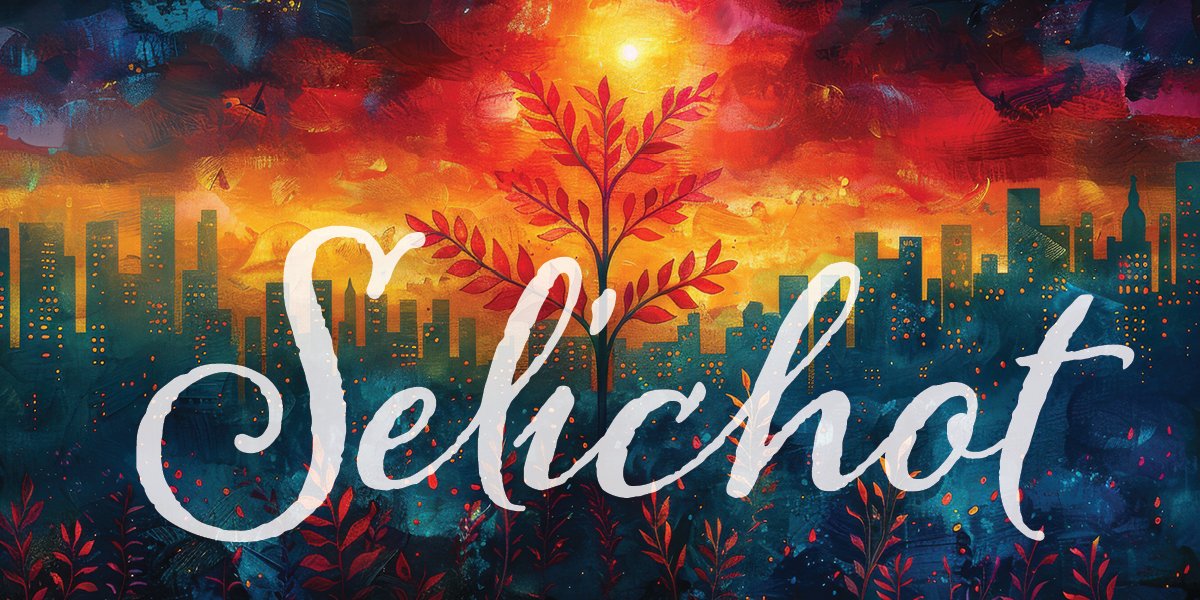
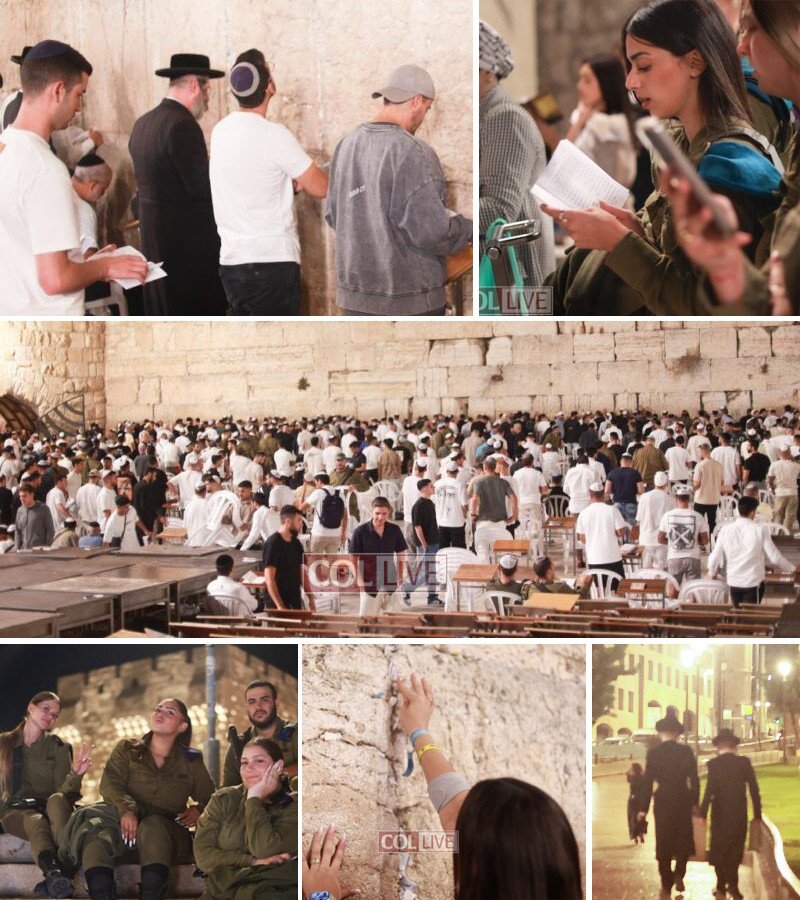
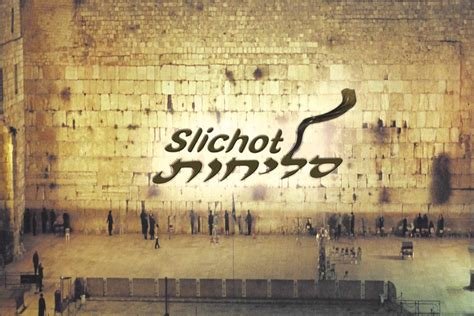
Festivals of the Righteous Non-Jew
Selichos
Introduction
The second phase Rosh HaShanah preparation is the recitation of selichos – penitential prayers. These prayers are meant to prepare the soul for Rosh HaShanah. Since Rosh HaShanah is the day upon which the heart of every person (Jew and Noahide alike) is examined, it makes sense that every person should prepare. The recitation of selichos is thus appropriate for both Jews and Noahides.
When to Start Saying Selichos?
Selichos are usually said in the early, pre-dawn, hours and followed by one’s regular devotions. As with all Noahide prayers, there is no quorum required for their recitation. They may be said by an individual or by a group of people. There are two different customs as to when to begin saying selichos.
The Sephardi Custom
According to the Sephardi custom (the custom of the Jews of Spain, North Africa, and the Middle East), selichos are said for the entire month of Elul. The reason for this is that Moses ascended Sinai on the first of Elul and remained there all month. He spent the time petitioning for his people and, eventually, received the second set of tablets. Selichos are recited for the entire month in commemoration and imitation of Moses’s petitioning upon Sinai.
The Ashkenazi Custom
Ashkenazi custom (the custom of the Jews of Europe and most of America) is a little more complicated. The Ashkenazi custom has two requirements. First, is that there must be a minimum of four days of selichos before Rosh HaShanah. Second, is that selichos must start after the preceding Shabbat. Therefore, if Rosh HaShanah starts on a Wednesday night, then selichos start after the preceding Shabbat. However, if Rosh HaShanah starts on a Monday night, then selichos starts after the Shabbat preceding the Shabbat before Rosh Hashanah. In such a case, selichos are said for almost 10 days.
This custom has a fascinating source. In the Torah’s list of the festival offerings1 it states over and over: “You shall bring…” However, the offering of Rosh HaShanah says: “You shall make…” The sages have noted this subtle difference.
On Rosh HaShanah, they explain, a person must make himself like an offering, a sacrifice, to God. He must prepare his soul in the same way in which a sacrifice is prepared for the Temple. Just as a sacrifice must be examined and watched for four days to ensure it is free of a disqualifying blemish, so too must a person search and examine his soul for at least four days prior to Rosh HaShanah.
What is the reason for always beginning after Shabbat? Beginning after Shabbat was originally a practical matter of synagogue logistics. Over time it became standard convention.
Which Custom Should a Non-Jew Follow?
It seems more appropriate for Noahides to follow the Ashkenaz custom with some slight modifications. There are many, many reasons why the Ashkenaz custom is preferable for Noahides. Namely:
1)Moses’s ascending Sinai in Elul, the basis for the Sephardic custom, wasabout seeking atonement for the Jewish sin of the golden calf. This is lessrelevant to Noahides than the reason behind the Ashkenaz custom.Noahides, after all, have a share in the laws of offerings. In fact, aNoahide may, even today, offer certain sacrifices (something even a Jewcannot do!)
2)Almost all of the texts of the selichos are inapplicable to Noahides. Thereare barely enough texts for the Ashkenaz custom and certainly not enoughto fill out an entire month of selichos according to the Sephardic custom.
Since the Ashkenaz custom of starting selichos after Shabbat began as a matter of synagogue logistics, it is not relevant to Noahides. For this reason, we suggest that Noahides say selichos only in the four days before Rosh HaShanah. While Jews do not say selichos on Shabbat, the reasons for this omission do not apply to Noahides. Therefore, Noahides who wish to say selichos should began four days before Rosh HaShanah and say them for each of the four days.
There are very, very few existing selichos texts that work for Noahides. The composition of uniquely Noahide selichos is worthwhile and certainly needed for those who wish to say selichos. An excellent source for the format can be found in the Noahide Nations Noahide Siddur, 'The Order'. 'The Order' is a significant compilation of daily prayers and blessings as well as for the festivals that Noahides can observe. It was written by several graduates of the Noahide Laws & Lifecycle course with input from multiple Orthodox Jewish Torah Scholars and published by Noahide Nations.
The selichos service consists of fixed prayers interspersed with the selichos texts. The selichos texts change daily, while the fixed portions remain the same. The outline is as follows:
**Opening Prayers - The Selichos service consists of fixed opening prayers.
**Selichos - Each selicha (the singular of selichos) is separated by a repeatedprayer refrain.
**The Litany – Following selichos we recite a confession.
**Supplication – The concluding prayer.
The following is a suggested selichos service for Noahides. It is adapted from the traditional Ashkenaz selichos service.

